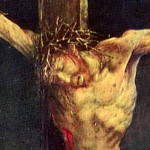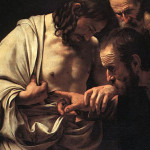Answering 5 More Common Objections to the Resurrection
by Dr. Peter Kreeft
Filed under The Resurrection
NOTE: Christians around the world celebrated Good Friday and Easter last week, which commemorate the death and resurrection of Jesus Christ. Thus we began a six-part series on these events by Dr. Peter Kreeft in which he examines each of the plausible theories attempting to explain what happened to Jesus at the end of his life, particularly whether he rose from the dead.
Part 1 - 5 Possible Theories that Explain the Resurrection of Jesus
Part 2 - Rejecting the Swoon Theory: 9 Reasons Why Jesus Did Not Faint on the Cross
Part 3 - Debunking the Conspiracy Theory: 7 Arguments Why Jesus’ Disciples Did Not Lie
Part 4 - Refuting the Myth Theory: 6 Reasons Why the Resurrection Accounts are True
Part 5 - Real Visions: 13 Reasons the Disciples Did Not Hallucinate
Part 6 - Answering 5 More Common Objections to the Resurrection
No alternative to a real resurrection has yet explained six key facts: the existence of the Gospels, the origin of the Christian faith, the failure of Christ's enemies to produce his corpse, the empty tomb, the rolled-away stone, or the accounts of the post-resurrection appearances. Swoon, conspiracy, hallucination, and myth have been shown to be the only alternatives to a real resurrection, and each has been refuted.
What reasons could be given at this point for anyone who still would refuse to believe? At this point, general rather than specific objections are usually given. For instance:
Objection 1: History is not an exact science. It does not yield absolute certainty like mathematics.
Reply: This is true, but why would you note that fact now and not when you speak of Caesar or Luther or George Washington? History is not exact, but it is sufficient. No one doubts that Caesar crossed the Rubicon; why do many doubt that Jesus rose from the dead? The evidence for the latter is much better than for the former.
Objection 2: You can't trust documents. Paper proves nothing. Anything can be forged.
Reply: This is simply ignorance. Not trusting documents is like not trusting telescopes. Paper evidence suffices for most of what we believe; why should it suddenly become suspect here?
Objection 3: Because the resurrection is miraculous. It's the content of the idea rather than the documentary evidence for it that makes it incredible.
Reply: Now we finally have a straightforward objection—not to the documentary evidence but to miracles. This is a philosophical question, not a scientific, historical or textual question.
Objection 4: It's not only miracles in general but this miracle in particular that is objectionable. The resurrection of a corpse is crass, crude, vulgar, literalistic, and materialistic. Religion should be more spiritual, inward, ethical.
Reply: If religion is what we invent, we can make it whatever we like. If it is what God invented, then we have to take it as we find it, just as we have to take the universe as we find it, rather than as we'd like it to be. Death is crass, crude, vulgar, literal, and material. The resurrection meets death where it is and conquers it, rather than merely spouting some harmless, vaporous abstractions about spirituality. The resurrection is as vulgar as the God who did it. He also made mud and bugs and toenails.
Objection 5: But a literalistic interpretation of the resurrection ignores the profound dimensions of meaning found in the symbolic, spiritual, and mythic realms that have been deeply explored by other religions. Why are Christians so narrow and exclusive? Why can't they see the profound symbolism in the idea of resurrection?
Reply: They can. It's not either-or. Christianity does not invalidate the myths, it validates them, by incarnating them. It is "myth become fact," to use the title of a germane essay by C.S. Lewis (in God in the Dock). Why prefer a one-layer cake to a two-layer cake? Why refuse either the literal-historical or the mythic-symbolic aspects of the resurrection? The Fundamentalist refuses the mythic-symbolic aspects because he has seen what the Modernist has done with it: used it to exclude the literal-historical aspects. Why have the Modernists done that? What terrible fate awaits them if they follow the multifarious and weighty evidence and argument that naturally emerges from the data, as we have summarized it here in this series of posts?
The answer is not obscure: traditional Christianity awaits them, complete with adoration of Christ as God, obedience to Christ as Lord, dependence on Christ as Savior, humble confession of sin, and a serious effort to live Christ's life of self-sacrifice, detachment from the world, righteousness, holiness, and purity of thought, word, and deed. The historical evidence is massive enough to convince the open-minded inquirer. By analogy with any other historical event, the resurrection has eminently credible evidence behind it. To disbelieve it, you must deliberately make an exception to the rules you use everywhere else in history. Now why would someone want to do that?
Ask yourself that question if you dare, and take an honest look into your heart before you answer.
Related Posts
Note: Our goal is to cultivate serious and respectful dialogue. While it's OK to disagree—even encouraged!—any snarky, offensive, or off-topic comments will be deleted. Before commenting please read the Commenting Rules and Tips. If you're having trouble commenting, read the Commenting Instructions.













